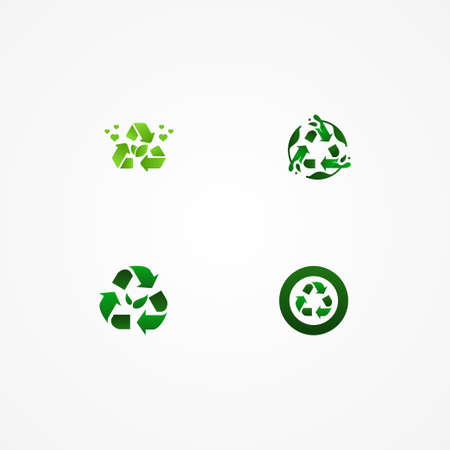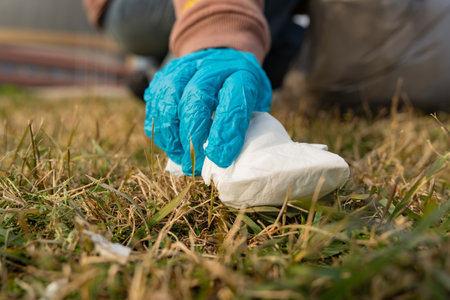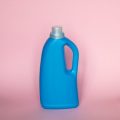Introduction to Eco-Friendly Cleaning in the UK
In recent years, British households have increasingly embraced eco-friendly cleaning practices, reflecting a broader shift towards sustainability across the nation. This growing awareness is shaped by both global environmental concerns and local British values, where preserving the countryside, reducing waste, and supporting community-driven initiatives have long been cherished traditions. As families throughout the UK become more conscious of their ecological footprint, many are motivated to seek out natural cleaning alternatives that are gentle on both their homes and the planet. The move towards sustainable cleaning is not just a trend, but a meaningful lifestyle change—one deeply rooted in the British appreciation for nature, wellbeing, and social responsibility.
2. Common Chemical Cleaners and Their Impact
Many British households still rely on conventional cleaning products, which promise sparkling surfaces and germ-free environments. However, beneath their glossy packaging, these chemical cleaners often contain ingredients that can pose risks both to our health and the environment. From chlorine bleach in bathroom sprays to ammonia in glass cleaners, these substances are effective at removing dirt but may leave behind unwanted side effects.
Environmental Concerns
When chemical cleaners are rinsed down the drain, they enter the water system, where some ingredients do not break down easily. Over time, this accumulation can disrupt aquatic ecosystems and contaminate local water supplies. In addition, many cleaning products come in single-use plastic bottles, contributing to the growing problem of plastic waste in the UK.
Health Effects on Households
For families and individuals, repeated exposure to chemical residues can cause respiratory irritation, skin allergies, and even hormone disruption. Children and pets are particularly vulnerable due to their closer contact with treated surfaces. Studies have shown that frequent use of harsh cleaning agents indoors may be linked to increased asthma rates and other chronic conditions.
Why Britons Are Reconsidering Their Use
With a growing awareness of these issues, more people in the UK are questioning whether traditional cleaning products are truly necessary for maintaining a healthy home. The shift toward eco-friendly alternatives is driven by a desire to reduce personal exposure to toxins while also protecting the natural beauty of Britains landscapes and waterways.
| Common Cleaner | Main Chemicals | Potential Risks |
|---|---|---|
| Bleach-based Sprays | Sodium hypochlorite | Irritation, water pollution |
| Glass Cleaners | Ammonia | Lung irritation, aquatic toxicity |
| Antibacterial Wipes | Quaternary ammonium compounds (quats) | Skin allergies, resistance concerns |
This understanding has inspired many British households to seek out greener options that clean effectively without compromising well-being or the environment.

3. Natural Alternatives: What Works for British Homes
Making the switch to natural cleaning solutions is both accessible and effective, especially in the context of British households. Everyday items such as bicarbonate of soda (baking soda), white vinegar, and essential oils are not only gentle on the environment but also easily found in local supermarkets across the UK.
Bicarbonate of Soda: The Versatile Cleaner
Bicarbonate of soda is a staple in many British kitchens, often used for baking, but its gentle abrasive qualities make it a brilliant cleaner too. Sprinkle it onto stubborn stains on worktops or inside ovens, add a splash of water, and gently scrub with a soft cloth. For carpet freshening, simply sprinkle over carpets, let it sit for fifteen minutes, then vacuum away odours and dirt naturally.
White Vinegar: A Time-Tested Solution
White vinegar has long been trusted by generations of Britons for its natural antibacterial properties. Mix equal parts white vinegar and water in a spray bottle to tackle limescale on taps, streaky mirrors, or even to freshen up your washing machine. Its acidity cuts through mineral deposits common in hard water areas found throughout the UK.
Essential Oils: Fragrance and Antibacterial Power
Essential oils such as lavender, tea tree, or lemon not only bring a pleasant aroma to your cleaning routine but also offer additional antibacterial benefits. Add a few drops to your homemade cleaning sprays or mop buckets for a refreshing scent that doesn’t overpower. These oils can be sourced from most British health shops or supermarkets.
Putting It All Together
For an all-purpose surface cleaner ideal for British homes, combine 250ml of white vinegar, 250ml of water, and 10 drops of your favourite essential oil in a reusable spray bottle. Use this mixture in the kitchen, bathroom, or even on windows—an easy swap that’s both eco-friendly and effective.
A Gentle Transition
By integrating these accessible ingredients into daily routines, British households can maintain sparkling clean homes while supporting sustainability. The simplicity and availability of these solutions mean anyone can begin making small yet impactful changes today.
4. Simple Swaps for Everyday Cleaning
Transitioning to eco-friendly cleaning routines in British households is easier than it seems, especially when you make small, simple swaps in your daily chores. These changes not only help reduce your environmental impact but also create a healthier home environment for your family.
Washing Up
Instead of traditional washing-up liquids filled with synthetic chemicals, opt for plant-based formulas or make your own using natural ingredients like baking soda and lemon juice. Consider switching to reusable sponges made from natural fibres, such as loofah or cellulose, which are compostable and gentle on delicate crockery.
Laundry
For laundry, try eco-friendly detergents that are biodegradable and free from harsh fragrances. You can also add a splash of white vinegar to the rinse cycle as a natural fabric softener. If you’re keen on going the extra mile, soap nuts or laundry eggs are increasingly popular sustainable choices across the UK. Here’s a quick comparison:
| Product | Eco Benefit | How to Use |
|---|---|---|
| Soap Nuts | 100% natural & compostable | Add 4-5 nuts in a cotton bag per wash |
| Laundry Egg | Reusable for up to 70 washes | Place egg directly in the drum |
| Bicarbonate of Soda | No synthetic additives; multi-purpose | Add 1 tbsp to detergent drawer |
Surface Cleaning
When it comes to cleaning worktops and surfaces, ditch antibacterial sprays with strong artificial scents. Instead, use a mixture of distilled white vinegar and water with a drop of essential oil for fragrance. Microfibre cloths are effective but if you prefer a plastic-free option, try unbleached cotton cloths which can be washed and reused many times.
Tip:
If you’re concerned about limescale (a common issue in many UK regions), rubbing half a lemon over taps and showerheads is a time-honoured British trick that works wonders.
Summary Table: Quick Eco-Friendly Swaps for Chores
| Chore | Traditional Product | Eco-Friendly Alternative |
|---|---|---|
| Washing Up | Synthetic sponge/liquid | Natural sponge/DIY soap |
| Laundry | Chemical detergent/softener | Biodegradable detergent/vinegar/soap nuts |
| Surface Cleaning | Chemical spray/wipes | Vinegar solution/cotton cloths |
The gradual introduction of these simple swaps into your household routine is an easy yet meaningful way to support eco-friendly living while embracing wholesome, traditional British values of sustainability and wellbeing.
5. Sourcing Sustainable Products in the UK
Embracing eco-friendly cleaning goes hand-in-hand with supporting British brands and local businesses committed to sustainability. Across the UK, a growing number of household names and independent shops are paving the way for greener cleaning habits. Brands like Bio-D, Ecover, and Method offer plant-based, biodegradable cleaning products that are effective and gentle on both your home and the environment. These companies prioritise ethical sourcing, minimal packaging, and cruelty-free formulas—values that resonate with conscious consumers.
Local Shops Championing Green Living
Your local high street is a treasure trove of eco-conscious options. Many community shops now stock British-made cleaning refills or zero-waste alternatives. Pop into your neighbourhood refill shop or health food store; you’ll often find bulk containers where you can top up your own bottles with washing-up liquid, multi-surface sprays, or laundry detergent. This not only reduces single-use plastic but also supports small businesses committed to sustainable living.
Refilleries: A Greener Way Forward
Refill stations and eco-stores are gaining popularity throughout the UK, from bustling London boroughs to quaint Cotswold villages. Shops such as The Clean Kilo in Birmingham, Earth.Food.Love in Totnes, and Zero Waste Market in Glasgow make it simple to buy only what you need while avoiding unnecessary packaging. Refilleries typically offer natural cleaning concentrates, reusable cloths, wooden brushes, and compostable sponges—all sourced with sustainability at heart.
Supporting Local for a Healthier Home and Planet
Choosing to shop locally for eco-friendly cleaning supplies is more than just a purchasing decision—it’s an investment in your community and our shared environment. By opting for British brands and independent retailers, you help reduce carbon footprints associated with long-distance shipping and encourage a circular economy where resources are valued and waste is minimised. Next time you’re restocking your household essentials, consider seeking out those green gems close to home—you’ll be making a positive difference for both your family’s wellbeing and the planet’s future.
6. Building Lasting Eco-Friendly Habits
Developing and maintaining eco-friendly cleaning routines can be both rewarding and straightforward when approached as a gradual lifestyle shift. To ensure your household’s commitment to natural cleaning solutions stands the test of time, start by setting small, achievable goals. For instance, designate certain days for using homemade cleaners, or agree as a family to reduce plastic waste by purchasing refills or bulk ingredients.
Encourage Household Participation
Make green cleaning a collective effort rather than an individual task. Involve children by letting them help create simple vinegar-based sprays or lemon-scented scrubs, teaching them about the health and environmental benefits in the process. Assign roles so everyone feels responsible—perhaps one person mixes solutions while another reuses old jars for storage.
Keep It Visible and Accessible
Store your eco-friendly products and recipes where everyone can see and use them easily. Labels with clear instructions make it effortless for any household member to grab the right cleaner for the job. Consider keeping a “green cleaning caddy” under the sink stocked with reusable cloths and all-natural ingredients.
Celebrate Progress and Share Inspiration
Take time to acknowledge milestones, such as a month without single-use bottles or successfully switching to natural alternatives for all surfaces. Share your journey with friends or neighbours—perhaps through a community group or social media—to inspire others across Britain to embrace natural, health-conscious habits. Remember, building lasting change is all about consistency, encouragement, and celebrating every small step towards a healthier home and planet.

